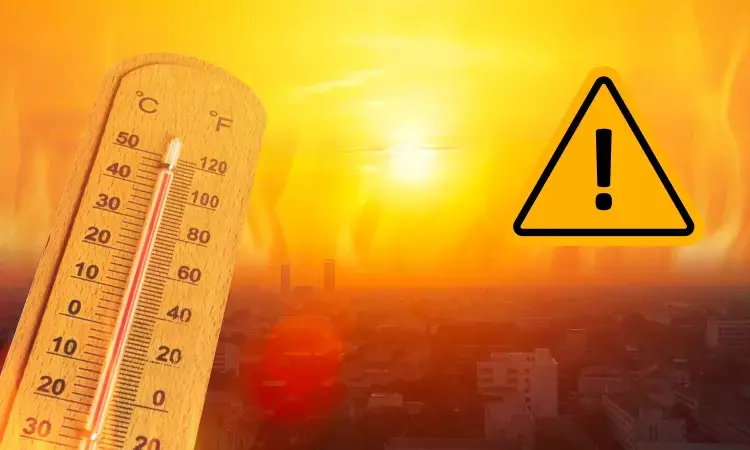- Home
- Medical news & Guidelines
- Anesthesiology
- Cardiology and CTVS
- Critical Care
- Dentistry
- Dermatology
- Diabetes and Endocrinology
- ENT
- Gastroenterology
- Medicine
- Nephrology
- Neurology
- Obstretics-Gynaecology
- Oncology
- Ophthalmology
- Orthopaedics
- Pediatrics-Neonatology
- Psychiatry
- Pulmonology
- Radiology
- Surgery
- Urology
- Laboratory Medicine
- Diet
- Nursing
- Paramedical
- Physiotherapy
- Health news
- Fact Check
- Bone Health Fact Check
- Brain Health Fact Check
- Cancer Related Fact Check
- Child Care Fact Check
- Dental and oral health fact check
- Diabetes and metabolic health fact check
- Diet and Nutrition Fact Check
- Eye and ENT Care Fact Check
- Fitness fact check
- Gut health fact check
- Heart health fact check
- Kidney health fact check
- Medical education fact check
- Men's health fact check
- Respiratory fact check
- Skin and hair care fact check
- Vaccine and Immunization fact check
- Women's health fact check
- AYUSH
- State News
- Andaman and Nicobar Islands
- Andhra Pradesh
- Arunachal Pradesh
- Assam
- Bihar
- Chandigarh
- Chattisgarh
- Dadra and Nagar Haveli
- Daman and Diu
- Delhi
- Goa
- Gujarat
- Haryana
- Himachal Pradesh
- Jammu & Kashmir
- Jharkhand
- Karnataka
- Kerala
- Ladakh
- Lakshadweep
- Madhya Pradesh
- Maharashtra
- Manipur
- Meghalaya
- Mizoram
- Nagaland
- Odisha
- Puducherry
- Punjab
- Rajasthan
- Sikkim
- Tamil Nadu
- Telangana
- Tripura
- Uttar Pradesh
- Uttrakhand
- West Bengal
- Medical Education
- Industry
Health Ministry issues heatwave advisory- Stay indoors during peak hours

New Delhi: With the India Meteorological Department (IMD) warning that daytime temperatures in Delhi may soar to 45 degrees Celsius, the Health Ministry has issued an advisory urging people to stay indoors during peak hours and to drink safe fluids.
The IMD has issued an orange alert for the national capital on Wednesday. The IMD has warned that daytime temperatures in Delhi could reach as high as 45 degrees Celsius, with night-time lows hovering around 29 degrees Celsius.
The ongoing weather conditions are part of a prolonged heatwave affecting large parts of northwestern India. “Extreme heat can be risky. Stay indoors during peak hours, eat lower-calorie food, drink safe fluids, and never leave kids or pets in parked cars,” the Health Ministry said in a post on social media platform X. “Call 108/102 if someone shows signs of heatstroke,” it added, news agency IANS reported.
Also Read:Health Ministry shares guidelines for heat safety in workplace
In an infographic shared along with the post, the Ministry urged people to avoid getting out in the sun, especially between 12:00 noon and 03:00 pm. It also urged citizens to avoid strenuous activities when outside in the afternoon, cooking during peak summer hours, and to open doors and windows to ventilate the cooking area adequately.
The Health Ministry advised citizens to avoid alcohol, tea, coffee, and carbonated soft drinks or drinks with large amounts of sugar and importantly, not to leave children or pets in parked vehicles. Call 108/102 immediately if you find someone with a high body temperature and is either unconscious or confused, the advisory said.
“The heat is rising, but awareness can save lives! A heatwave isn’t just about soaring temperatures. It’s about knowing the risks, recognising the signs, and protecting each other. Let’s beat the heat together!” said the IMD on X.
To protect from the heat, the IMD urged citizens to wear lightweight, loose-fitting, and light-coloured clothing. Cover your head using a hat, umbrella, towel, and drink water frequently, it said. Earlier on Tuesday, Delhi recorded its highest maximum temperature of the season at 43.8 degrees Celsius, which is 3.6 degrees above the seasonal average, as per IMD data.
According to the IMD, very hot weather and heat waves in Delhi will persist until at least June 12. Dr. Atul Kakar from the Department of Internal Medicine, at a leading city-based hospital, told IANS that several patients are presenting with heat exhaustion, heat stroke, severe dehydration, gastroenteritis, and jaundice.
“Exposure to the sun should be the bare minimum. Wear full sleeve clothes, or take an umbrella or cover your head during that period when you are getting exposed to the sun,” Kakar said.
Take more liquids which may include lassi, lemonade, orange juice, or fruits that contain more water like watermelon and melon,” the doctor told IANS. He also urged people to avoid eating outside.
Also Read:AYUSH Ministry takes steps to safeguard Public Health regarding Heatwave
Kajal Rajput joined Medical Dialogues as an Correspondent for the Latest Health News Section in 2019. She holds a Bachelor's degree in Arts from University of Delhi. She manly covers all the updates in health news, hospitals, doctors news, government policies and Health Ministry. She can be contacted at editorial@medicaldialogues.in Contact no. 011-43720751


